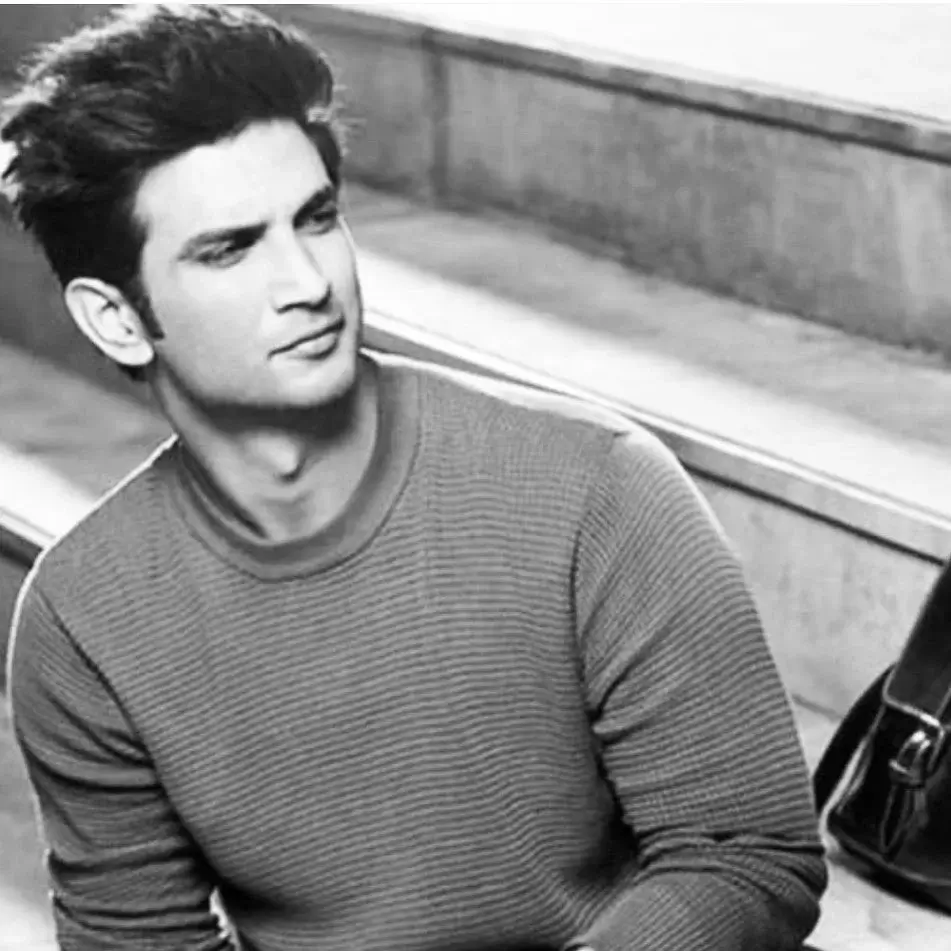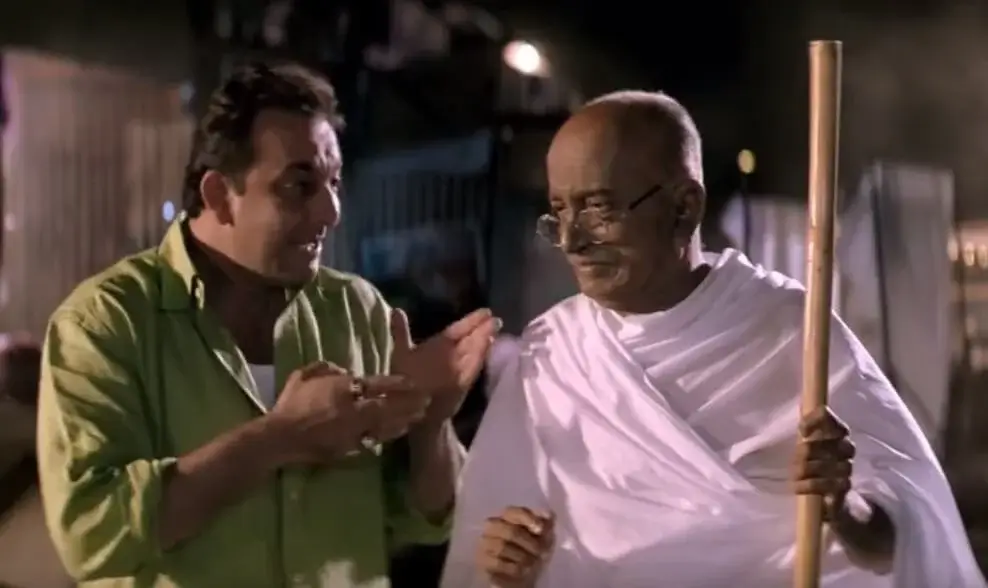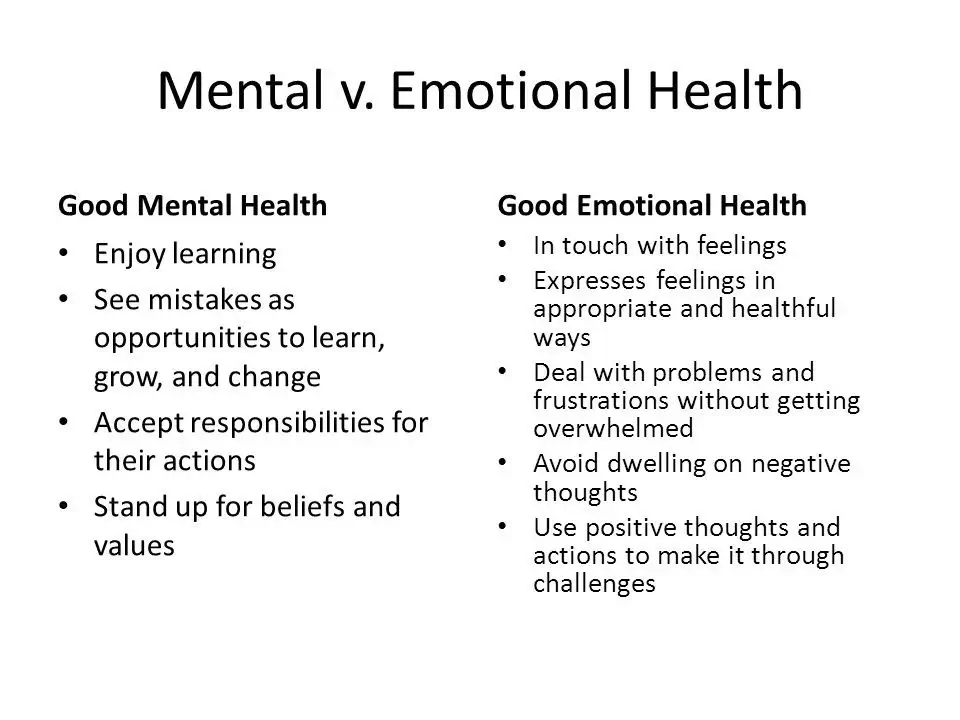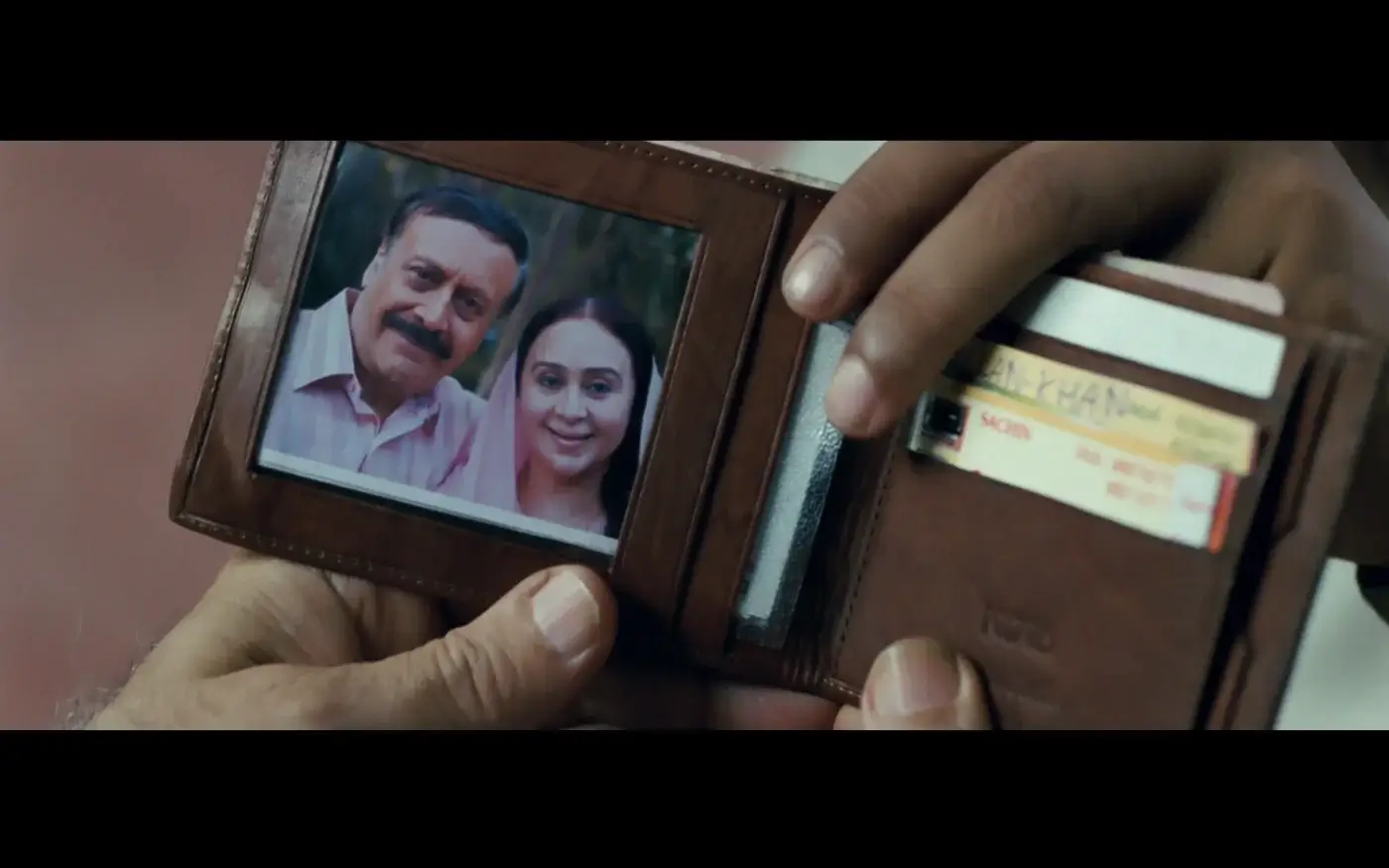Things we need to understand about depression/suicidal thoughts (Feat. #SushantSinghRajput)
Yesterday, I received the heartbreaking news of the suicide of the talented actor Sushant Singh Rajput. The reason behind his decision was revealed to be a prolonged difficult phase he had been experiencing in recent years. Throughout the day, I tried to maintain composure, but I found it impossible. I'm unsure if it's the shock of the incident itself or the underlying cause that has unsettled me. However, I feel deeply disturbed by the rationale behind his tragic decision. Therefore, I have made the decision to express my thoughts on this matter through writing, as I believe it will provide some solace and enable me to find peace in order to sleep.

So here I am, it’s 3:02 AM (June, 15) in my room, lights off, laptop’s night mode on, thinking why do I get so affected by this news. The major reason behind this is the opinions on depression and mental health from the people around me.
Why am I writing this now? Unfortunately, it is perhaps the only time people will take suicide, depression and mental health seriously. Hence, I think this is the perfect time to share this with you all.
Before you start reading this, I want to share one quote with you:
“Believe nothing, no matter where you read it, or who said it, no matter if I’ve said it unless it agrees with your own reason and your own common sense” — Buddha
So whatever you’re going to read below is my perception, feel free to disagree and there are a lot of things I’ve written are debatable. Take only the things which you like.
Let’s Start
In order to delve deeper into the true mental state of a person experiencing extreme stress and contemplating suicide, it is important to understand the distinction between emotional wounds and physical wounds. This article will primarily focus on comparing these two types of wounds, aiming to shed light on the underlying dynamics.
Emotional wounds > Physical wounds
— Ashmeet Sehgal (@ashmeetsehgal) June 8, 2020
i.e. EMOTIONAL HEALTH v/s PHYSICAL HEALTH
AND,
1. "Is there a difference between mental health and emotional health, if yes, then what?"
2. "Why do we need to emphasise more on emotional health than physical health?"
3. "The mindset behind ending your own life."
4. "Is there a solution?"
tl;dr
Before coming to the main one, let’s see Emotional Health vs Mental Health,
Q: Is there a difference between mental health and emotional health, if yes, then what?
In simple words, Mental Health as the name suggests it is connected to the brain/mind. If you’ve seen the movie “Lage Raho Munna Bhai”, then you can easily connect with this scene where the lead character starts to see the spirit of “Mahatma Gandhi” everywhere due to chemical imbalance in his brain. This can be natural or due to some external factors. (like family conditions, intense mental focus on something for a very long time without any break).

Lage Raho Munna Bhai Movie Scene
However, on the contrary, Emotional Health deals with matters of the heart. The issues that develop more often when people have to deal with traumatic or negative life events. People often have different symptoms when they struggle with emotional or mental health issues.
And people can suffer from both at the same time. So where we need to focus. Which one is more important to take care of? Both are crucial but which should be on more priority? Mind dominates Heart or it’s the other way around. Let’s take an example of this to get the answer.
To understand this better, let's take an example. Imagine a girl who is in love with a guy who is not right for her. Her mind knows this, but her heart is still drawn to him. Despite the rational calculations and objections from both families, she may find it hard to let go of her emotions. This shows the power of the heart, which cannot always be controlled by the mind.
Therefore, it is essential to train both the mind and heart to maintain good mental and emotional health. By developing emotional intelligence, we can learn to recognize and regulate our emotions, while also using our rational thinking to make informed decisions. Ultimately, a balance between the mind and heart is the key to a healthy and fulfilling life.
Q: Why do we need to emphasise more on emotional health than physical health?
It's important to understand that we can't always know what someone else is going through, and it's not fair to compare or judge them based on their mental or emotional health. Unlike physical health, there are no visible signs to indicate how strong someone is mentally and emotionally. We don't have a device to measure emotional or mental pressure.
Comparing or judging someone's mental and emotional abilities is like comparing a strong wrestler with a thin person based on their ability to lift weights. However, in this case, the weights of the dumbbells are different, and life doesn't always give us weights based on our capabilities or strengths. While physical health is visible, we can't see what's going on inside the mind of a physically healthy person. Therefore, it's essential to be understanding and empathetic towards others, as we can't always know the struggles they may be facing internally.
![top-left: [Dwayne Johnson], bottom-left: [The Great Khali] - Ashmeet Sehgal Blog top-left: [Dwayne Johnson], bottom-left: [The Great Khali] - Ashmeet Sehgal Blog](/content/body.webp)
top-left: Dwayne Johnson, bottom-left: The Great Khali
How can someone even think of suicide?
Here we need to understand how Emotional Wounds are more dangerous than Physical Wounds? It's important to understand the potential danger of emotional wounds and how they can lead to significant decisions.
Let's consider an example: if you have a wounded arm that is bleeding, your mind recognizes the injury and understands that it needs attention. Similarly, your heart recognizes the danger and signals your mind to take action to heal the wound.
Your mind may take measures such as seeking medical attention, applying first aid, or taking medication to promote healing. Throughout the recovery process, your mind continues to monitor progress, assessing whether the treatment is effective, and making adjustments as needed to ensure the arm fully recovers.
However, emotional wounds are different. Unlike physical wounds, emotional wounds are often not visible, making it more difficult to recognize when they occur. These wounds can have a significant impact on our mental and emotional well-being, leading to critical decisions in our lives.
For example, a traumatic event such as the loss of a loved one or a breakup can leave deep emotional wounds that are difficult to heal. These wounds can lead to significant decisions such as seeking therapy, changing careers, or even moving to a different location.
The problem when your heart is wounded
Now let's consider a scenario where you have experienced a tragedy, and your emotional wounds have impacted your central nervous system. In this case, even if you are mentally stable, your wounded heart may prevent your brain from initiating the healing process. Your heart may not signal your mind to take action, such as seeking medical attention or taking medication, to promote healing.
Emotional wounds can have a profound impact on our overall well-being, affecting both our physical and mental health. If left unaddressed, emotional wounds can prevent us from taking the necessary steps towards healing and achieving a healthier state of mind. It's crucial to recognize the signs of emotional wounds and seek appropriate help and support to overcome them.

Like I said before, your heart always dominates your brain and your brain surrenders. You don’t feel like doing anything. You want this world to be stopped at that moment. You don’t feel like sharing anything with anyone, sometimes because of trust issues or sometimes it’s just that you think nobody can understand you. Nobody can feel your pain.
Which is true, nobody (not even your family, true friends), literally nobody can feel your pain or can share your pain.
Do you remember this scene from the movie Kabir Singh?
![A scene from the movie [Kabir Singh] - Ashmeet Sehgal Blog A scene from the movie [Kabir Singh] - Ashmeet Sehgal Blog](/content/ks.webp)
A scene from the movie Kabir Singh
And it is very true, suffering is very personal. But that doesn’t mean nobody can help you. Nobody can feel or share your pain however people can help you to get out of that zone.
The flow of changing mindset
So now when your heart is not signalling at all, you become a pessimist, experience worthlessness. 👇
With that worthless feeling, you start to overthink about things. Which starts affecting your eating and sleeping patterns. You’ll isolate yourself.👇
Impacted eating habits will disturb your physical health, you’ll feel a lack of energy and disturbed sleeping patterns will affect your mind. 👇
Now your mind is losing power to think, making decisions and facing difficulties in concentrating, remembering things. 👇
Now your body and mind are at their weakest zones. You have already lost interest in your regular activities at this time. And you’re about to lose hope. 👇
This is the last step, you lost your hope. You’re fed up of crying and those panic attacks. Thoughts of suicide have started. You may have been thinking about it for a long period. 👇
And this step is very quick to call and it just takes 5 to 10 minutes, literally no thinking involved. Suicide Plan to Attempt. And everything is over! 🥀
What we need to understand is especially in India, we don’t give much attention to terms like stress, anxiety, depression. These are still a taboo in our country.
We take physical health so seriously but mental health not enough.
So coming back to this incident of Sushant Singh Rajput, 34 years old, successful, intelligent, rich, healthy, happy? Now many people may wonder that he had such life which million people wish for, if you got this question in your mind, please do read this article again, you probably missed the point.
as Jim Carrey once said, “I think everybody should get rich and famous and do everything they ever dreamed of so they can see that it’s not the answer.”
This incident taught us not to leave each other alone, not to be hard on ourselves. No matter how popular, intelligent, healthy, rich you are, situations or circumstance may go wrong, people you get along with can also be wrong, life can be too harsh sometimes. We learnt that self-worth is not about the size of the car, the bank balance or brand of your clothing.
Q: Is there a solution?
Having someone willing to listen and ask concerned questions can make all the difference. This is it.
Sometimes sharing the problem with the right people is more important than finding the solution.#SushantSinghRajput
— Ashmeet Sehgal (@ashmeetsehgal) June 14, 2020
The solution I can think of
We are living in an era of social media, Everyone is flaunting their lives, luxuries, and how happy they are. Sometimes it’s obvious one get jealous and start hating his own life. And in this busy life, there is no one to talk to regarding mental health. Everyone in this world has to fight their own battles.
If I have to give a quick (1 line) solution to this, that would be, “The moment you feel that something is wrong, go to your family. In the end, the family is the only option which can save you from this”
And if you’re getting suicidal thoughts, pick up your phone and call your family. Remember this scene from 3 idiots, this works! Just imagine what would happen to your family’s smile when they’ll see your dead body.

A scene from 3 idiots
Depression is real. The world needs to accept it, not stigmatize it.
Depression, anxiety, mental stress these are real disease and 100% curable if you think it’s troubling you, getting medical help makes sense.
Attaching one Hindi video, on symptoms, causes & treatment
Dr Praveen Tripathi on depression’s symptoms, causes & treatment
On a lighter note, if you want to go deep into Emotional Health and Physical Health, Do watch this 👇 ENJOY 😀
AIB : If People Treated Other Illnesses Like They Treat Depression
AIB on treating depression like other illness
Please treat depression like we treat physical illness, Don’t say things you wouldn’t tell someone with a physical illness like cheer up or smile or why are you like this always. You can make that case worse by saying this.
I hope this will help someone somewhere in their life. A lot of people don’t face this in their life so this is not for everyone, don’t overthink that it may happen to you someday somewhere.
The core idea of writing this bit so that we can reprogram our mind to accept the idea of emotional wellbeing. Because our mind tells us that the pain we cannot see is the pain that does not exist or is not important.
And be kind to people because we cannot see this pain but it exists and people generally hide it behind laughs and smiles.
FAQ's
1. What's the difference between mental and emotional health?
Mental health refers to our cognitive well-being, how our brain processes thoughts and manages information. Emotional health relates to our feelings and how we cope with life's challenges. While interconnected, they are distinct.
2. Why is emotional health more important than physical health?
It's not about one being more important; it's about understanding the unseen. Physical health is readily observable, but emotional wounds remain hidden. We cannot measure emotional pressure like we can blood pressure. Judging someone's emotional resilience is like comparing weightlifters with different weights—life throws unequal challenges. Prioritising emotional well-being means acknowledging these invisible struggles.
3. How can emotional wounds be more dangerous than physical ones?
Physical wounds trigger immediate responses, our body signals pain, and our mind seeks treatment. Emotional wounds are insidious. They often go unnoticed, leading to delayed or absent healing efforts. Like a neglected injury, they fester and impact our entire system. This can prevent our minds from taking necessary action, even if we are mentally capable.
4. What leads someone to consider suicide?
When emotional wounds fester, a cascade effect can occur
Pessimism and worthlessness arise from unaddressed pain. Overthinking and isolation become coping mechanisms. Physical health deteriorates due to disrupted sleep and eating patterns. Cognitive function weakens, impairing decision-making and concentration. Hopelessness sets in, leading to suicidal thoughts as a perceived escape. This process can be slow and subtle, culminating in a sudden, impulsive decision.
5. What role does societal stigma play in emotional health?
Terms like stress, anxiety, and depression remain taboo in many cultures. We prioritise physical health while neglecting mental well-being. This leads to a lack of understanding and support for those struggling internally. Sushant Singh Rajput's suicide, despite outward success, highlights how internal struggles can affect anyone.
6. What’s the solution to this emotional health crisis?
Open communication and a supportive network are crucial. Sharing our burdens can alleviate the pressure. Reach out to family and friends, or seek professional help. Remember the scene from "3 Idiots" – sometimes a simple phone call can make a difference. Early intervention is key to preventing emotional wounds from becoming life-threatening.
7. How can we change our perspective on emotional well-being?
We need to reprogram our minds to acknowledge the validity of emotional pain. Just because it's invisible doesn't mean it's not real or significant. Treat emotional distress with the same seriousness as physical illness. Instead of dismissing feelings, offer empathy and support.
8. What's the takeaway message?
Be kind, be observant, and be proactive. Check in on loved ones, even those who seem happy. Encourage open conversations about mental and emotional health. Remember, we can't see the pain, but it exists. By fostering a culture of understanding and support, we can help each other navigate the complexities of emotional well-being and prevent tragedies.

